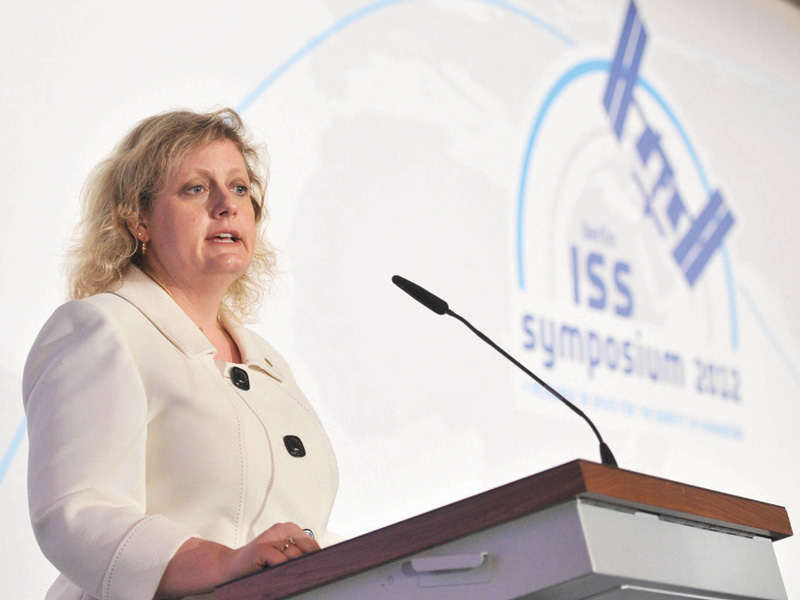
Julie Robinson addresses attendees of the Berlin ISS Symposium 2012 in Germany. Image courtesy of the European Space Agency
LOGAN – Utah State University President Noelle Cockett brought breaking news to her appearance at Monday afternoon’s monthly Faculty Senate meeting on campus.
After first revealing the commencement speaker and honorary degree recipients for the school’s 133rd graduation ceremonies on April 30, she announced her commitment to new greenhouse gas reduction recommendations that she said will lead to greater sustainability and cost savings on campus.
Consistent with USU’s celebration of the Year of the Woman, President Cockett said the Board of Trustees selected Julie A. Robinson to serve as commencement speaker with Linda S. Daines and Karen W. Morse as honorary degree recipients.

Dr. Robinson, a USU alum, is chief scientist of the International Space Station Division at NASA. She earned USU degrees in chemistry and biology in 1989. She attended USU on a Presidential Scholarship and was active in the Honors Program.
Logan native Linda Daines majored in cello performance at USU, later moved to New York City to pursue a Master’s degree at Columbia University, then in 1984 became one of the first women Managing Directors at Goldman Sachs.

Dr. Morse is a former chemistry professor, department head, college dean and provost at USU who later served 15 years as President of Western Washington University. Karen and her husband Joe, who directed USU’s honors program, served as mentors to Julie Robinson as she pursued her degrees at USU.
President Cockett took a significant step to reduce carbon emissions in February 2019, when she charged USU’s Greenhouse Gas Reduction Steering Committee to explore ways the school could be more proactive in reducing greenhouse gas emissions.
Among the actions USU will pursue include dedication of up to $60,000 annually in ongoing funds to allow USU facilities to purchase a renewable portfolio from an external power provider, investing $500,000 each year toward improving building energy efficiencies and creating a $10 per trip carbon fee on all university-sponsored airline flights with funds raised going to on-campus projects that reduce USU’s carbon footprint.

